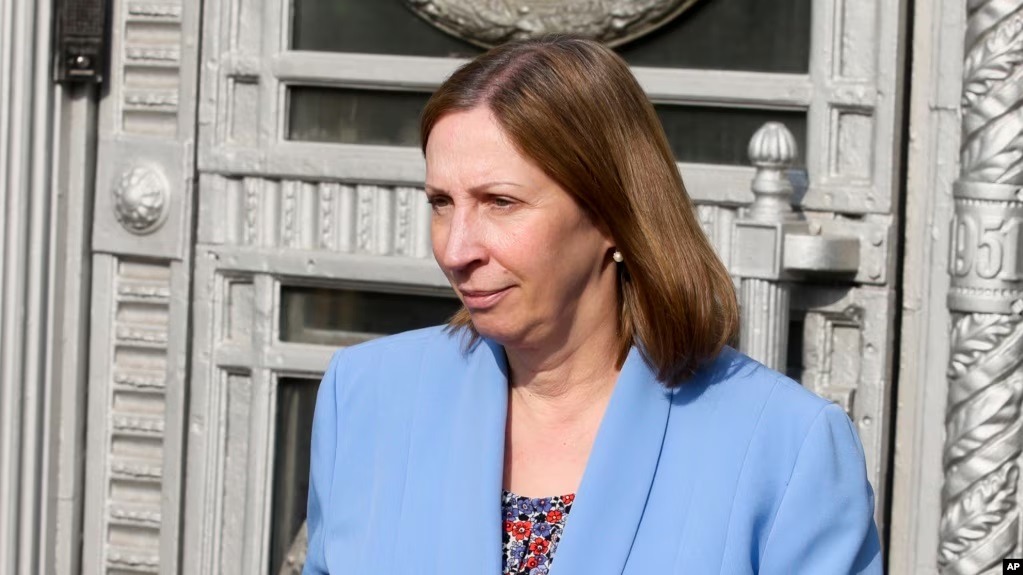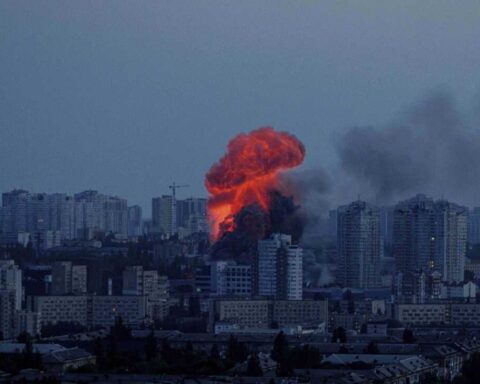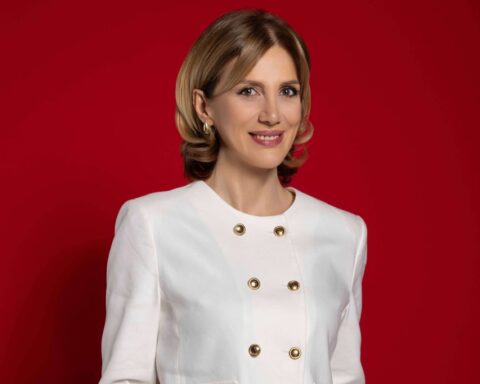Russia’s Foreign Ministry summoned U.S. Ambassador to Moscow Lynne Tracy and delivered a stern warning for Washington to stay out of Russia’s internal affairs ahead of a presidential election widely expected to hand incumbent Vladimir Putin another term in office given the absence of opposition candidates on the ballot.
The ministry informed Tracy on March 7 that three U.S. nongovernmental organizations (NGOs) — American Councils for International Education, Cultural Perspectives, and the Institute of International Education — had been labeled “undesirable organizations” and demanded the embassy “stop any collaboration” with them.
The ministry accused the NGOs of running “anti-Russian programs and projects aimed at recruiting ‘agents of influence’ under the guise of educational and cultural exchanges” and any further cooperation with the embassy “would be considered a violation of Russian law.”
Russian officials often show disdain for Western-backed NGOs and civil society groups, accusing them of trying to manipulate Russian public opinion in order to stir up popular discontent and advance the foreign policy interests of their home countries. Western governments routinely reject the claims.
“It is especially emphasized that attempts to interfere in the internal affairs of the Russian Federation, including subversive actions and the spread of disinformation in the context of elections and a special military operation, will be harshly and decisively suppressed, up to and including the expulsion as ‘persona non grata’ of U.S. Embassy employees involved in such actions,” the ministry said in a statement.
All three NGOs labelled say they conduct activities to strengthen international ties through academic, professional, and cultural exchanges and programs and that thousands of students have used the programs to further their education.
The activities of the three organizations will be prohibited in Russia, and anyone who cooperates with them may face criminal penalties, including up to six years in prison.
There was no immediate reaction from the embassy in Moscow or the three NGOs designated as “undesirable.”
The “undesirable organization” law, adopted in 2015, was a Kremlin-backed regulation on NGOs that receive funding from foreign sources. The label has been applied to dozens of foreign groups since Moscow began using the classification and effectively bans an organization outright.
RFE/RL was declared an “undesirable organization” last month.
The ministry’s move comes just over a week before Russians head to the polls in a presidential election the Kremlin hopes to use as a show of national unity in support of Putin and his invasion of Ukraine, which Russia refers to as a “special military operation.”
Russian elections are tightly controlled by the Kremlin and are neither free nor fair but are viewed by the government as necessary to convey a sense of legitimacy.
The Kremlin’s tight grip on politics, media, law enforcement, and other levers means Putin, who has ruled Russia as president or prime minister since 1999, is certain to win, barring a very big, unexpected development.

















